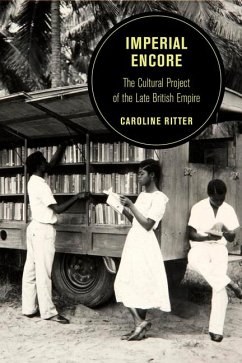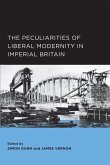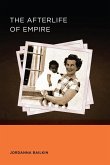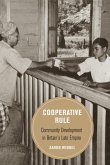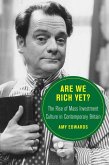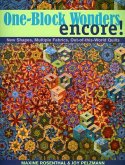"More than any previous historian, Caroline Ritter lays bare the extent--and ambiguities--of the British cultural project in late colonial and postcolonial Africa. Through case studies of the BBC, British publishing, and the British Council, she shows how a British cultural imperialism underpinned by a common and enduring conviction in the value of British Culture, and, in more practical ways, by colonial development, intensified during decolonisation. As Ritter recounts in this rich and highly perceptive account, by adopting African actors, and absorbing postcolonial critiques to create a more inclusive form of Britishness, this cultural project evolved and flourished after the end of empire."--Sarah Stockwell, author of The British End of the British Empire "Imperial Encore, the product of patient and painstaking research in diverse archives and media in Britain and East and West Africa, asks a compelling question: what was the place of British culture in the African postcolony? As Ritter ably demonstrates, this is a story of ambivalence, about the mysteries of taste, and why we love the things we love. Offering a cacophony of British and African voices on the question of what constituted African (or, for that matter, British) culture, Ritter takes us from performances of Macbeth in Lagos to the scramble for African authors at Oxford University Press. In Ritter's hands, this is no simple or straightforward story of 'translation, ' but a much more complex project concerned with dynamics of cultural power that outlasted political colonial rule, and questions of how we assign value that are still with us today. Ritter's careful study poses bigger questions about the historical inequalities that structure acts of reading, seeing, and hearing."--Jordanna Bailkin, author of The Afterlife of Empire "In Imperial Encore, Ritter brings a fresh and dynamic approach to late-imperial and post-colonial cultural relationships between Britain and Africa. This book is beautifully written, full of rich and interesting material, based on painstaking archival research across many collections and countries. The focus on drama, publishing, and broadcasting takes the cultural products of empire and post-empire seriously and develops a nuanced and rich exploration of the tensions and opportunities in these media in this period. By tracking the story from the 1930s all the way to the 1980s, the book effectively highlights the continuity, as well as the sometimes dramatic change, inherent to the late colonial and post-colonial period. This book is a rigorous and innovative contribution to New Imperial History and the current flourishing field of decolonisation and British decolonising history."--Charlotte Lydia Riley, Lecturer in British Twentieth Century History, University of Southampton
Hinweis: Dieser Artikel kann nur an eine deutsche Lieferadresse ausgeliefert werden.
Hinweis: Dieser Artikel kann nur an eine deutsche Lieferadresse ausgeliefert werden.

